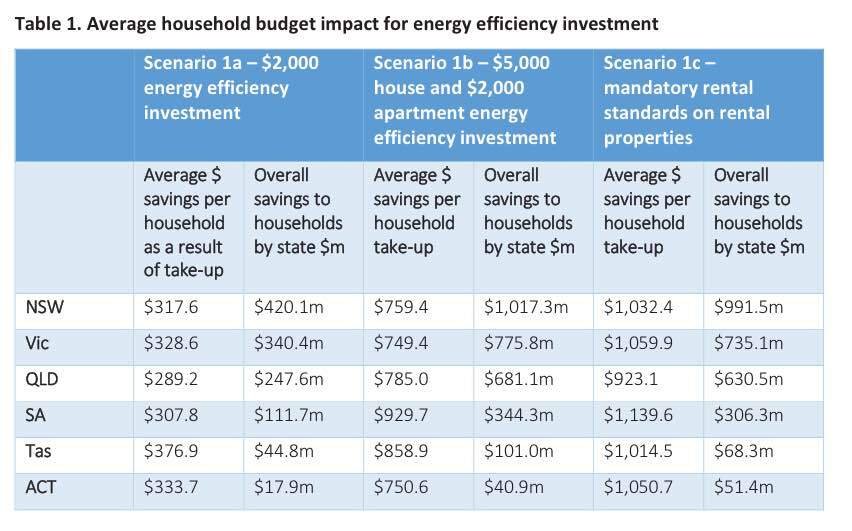Australian households could save up to $1000 a year on electricity costs from energy efficiency measures alone, a new report has found – but only with the backing of strong government policy.
The report, from the Australian Council of Social Service and the Brotherhood of St Laurence, names energy efficiency as one of the most direct policy pathways to lower power costs for the average Australian consumer, alongside rooftop solar.
In particular, federal and state policies for mandatory efficiency standards for existing housing stock could deliver annual savings ranging from $289 for apartments to $1,139 for houses.

“Our report finds that government investment in energy efficiency for houses and apartments would generate savings in electricity bills that over time would be higher than the original investment,” said ACOSS CEO Cassandra Goldie in comments on Monday.“For example, a $5,000 investment by government in energy efficiency for houses would save up to $929 per year in electricity bills, paying off the government’s original investment in savings to the household over less than five years.
But little has been done, so far, by either federal or state governments to take advantage of this so-called “low-hanging fruit” in power price reduction.“It’s bewildering that we keep talking about energy efficiency, and governments agree that it’s commonsense, but do nothing about it,” said ACOSS Senior Energy Advisor Kellie Caught in comments to RE on Monday. “To me, it’s the most significant finding of the report.”
Brotherhood of St Laurence executive director Conny Lenneberg notes that when the NGO helps low-income households install energy efficient appliances the benefits are “almost immediate:” lower bills, healthier homes and lower emissions.
“We need large-scale ongoing energy efficiency and solar programs for all residents on low incomes, whether they live in their own homes, or in social and community housing or rent privately, so that all benefit regardless of their financial circumstances,” she said.
